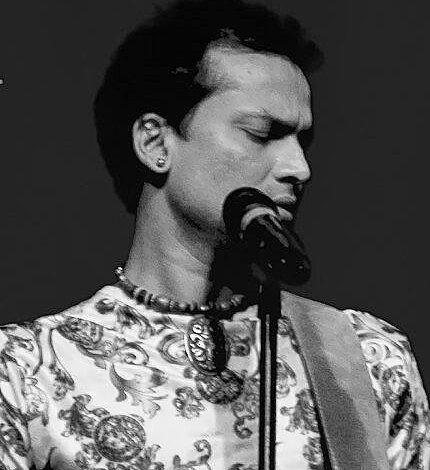
When the voice of Zubeen Garg fell silent, an entire generation of listeners across Assam and the Northeast felt a profound emptiness — a void that words can scarcely express. For over three decades, Zubeen wasn’t just a singer; he was an emotion, a movement, a symbol of cultural pride who redefined the soundscape of Assamese music and carried its essence far beyond geographical borders.
A Musical Journey Rooted in Tradition
Born in Jorhat in 1972, Zubeen Garg grew up surrounded by music. Named after the legendary composer Zubin Mehta, he was introduced to classical music at an early age by his mother, Ily Borthakur, a well-known singer herself. His grounding in classical and folk music gave him a rare versatility that later became his artistic signature.
Zubeen’s early rise came through Anamika (1992), an Assamese album that marked a new era in regional music. His soulful voice, relatable lyrics, and fresh instrumentation connected instantly with youth across Assam. Songs like “Maya”, “Pakhi”, and “Anamika” became timeless hits — not merely songs, but emotional anchors for Assamese listeners.
A Voice that Touched the Divine
There was something almost celestial about Zubeen’s voice — a divine resonance that transcended words and boundaries. His music had the power to soothe, to awaken, to unite. It carried the fragrance of Assam’s soil and the rhythm of its rivers, blending folk sensibility with modern sound. Over the years, his voice gained love from across the globe, reaching audiences who didn’t know his language but felt his emotion.
After his passing, his hauntingly beautiful song “Mayabini” found a renewed life — emerging as a theme song for music lovers around the world, symbolizing eternal love, longing, and the immortality of art. Listeners across continents now play it as a tribute — a melody that keeps his spirit alive in every beat.
Beyond Borders: A Pan-Indian Presence
Though Assamese music remained his heart, Zubeen’s talent transcended linguistic barriers. He made a successful foray into Bollywood with “Ya Ali” from the film Gangster (2006) — a song that topped charts across India and the Middle East. Yet, even at the peak of national fame, Zubeen never distanced himself from his roots. He continued to produce Assamese albums, film scores, and folk fusions, bringing Assamese music into modern digital platforms long before it became a trend.
A Multifaceted Artist
Zubeen was never confined to one role. He was a composer, lyricist, actor, filmmaker, and social voice — constantly experimenting with styles and genres. His ability to blend Bihu rhythms with global sounds, to shift from romantic ballads to social anthems, set him apart as one of the most dynamic musical personalities of his generation.
He also contributed immensely to the Assamese film industry (Jollywood), composing and acting in several acclaimed films such as Mission China and Kanchanjangha. His cinematic ventures often reflected his love for the land and people of Assam, portraying stories that celebrated resilience, culture, and identity.
The People’s Icon
Beyond the stage and screen, Zubeen was a people’s artist — approachable, spontaneous, and deeply empathetic. His concerts were more than performances; they were celebrations of unity. Whether performing in a small town or a global venue, his humility and passion created an intimate connection with audiences.
He also stood for social causes, supporting environmental awareness, youth empowerment, and humanitarian efforts across the state. For many, Zubeen represented not only the artistic soul of Assam but also its conscience — bold, compassionate, and free-spirited.
A Legacy Etched in Melody
Zubeen Garg’s passing marks the end of an era, but his music will continue to resonate — in the hum of radio waves, the beats of local festivals, and the memories of millions who grew up with his songs. His compositions are now part of Assamese folklore, sung by children and elders alike — a rare testament to the timelessness of his art.
As Assam mourns its beloved son, the silence he leaves behind is heavy — but so too is the echo of his voice, reminding us that true artists never fade. They live on through the hearts they touch and the culture they shape.
